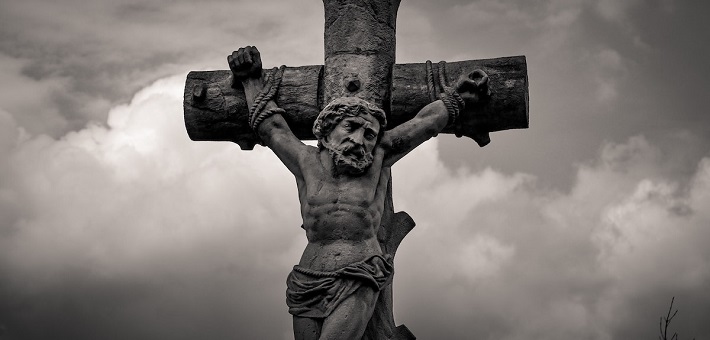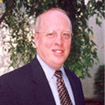Commentary on Hebrews 5:1-10
How often do congregations hear a sermon that uses Hebrews as its primary text? This Sunday gives preachers a reason to bring this book’s challenging, grace-filled voice into congregational life. It presents itself as not being aimed at beginners but as moving beyond basics into deeper dimensions of faith (see Hebrews 5:11-17). We all have our own needs for someone “to deal gently with the ignorant and wayward” elements of our lives (Hebrews 5:2). This book offers a rich resource for that purpose.
Hebrews is more sermon than epistle. It emphases some different connections to tradition than what we find in Paul or the Gospels yet still draws heavily from scriptures common to Jewish and Christian communities of that day. It seeks to connect primarily with Diaspora Judaism or Jewish people who consider themselves to be followers of Jesus.1 Both literally and metaphorically, it addresses people living outside of their homeland. In that sense, it speaks especially to those who feel dislocated—either geographically or in the grip of personal struggles or changes in the contexts of their lives.
Hebrews does not align itself with orthodox religious practices and authorities of its day. It looks away from the Temple (as all had to do after its destruction in 70 CE) and points back to the Exodus, back to the tabernacle in the wilderness. Then it looks further back, beyond the Exodus to Abraham, to the Patriarchs and Matriarchs. Then, in its most radical (and radically relevant) move, it points beyond Abraham to an almost unknown “priest of the God most High” named Melchizedek.
Melchizedek had no standard credentials, no stated pedigree, no letters of reference, and no official backing from anyone, apparently, besides “the God most High.” However, Abraham treats Melchizedek as a genuine connection to the living God, as a conduit of both righteousness and peace (see Hebrews 7:1-10; Genesis 14:17-24). The author of Hebrews does the same, connecting Jesus to Melchizedek’s line of ministry—one without foundation in familiar institutions, not focused on preserving religious structures, theologies, and practices. It seeks only to be faithful to the living God, wherever that leads.
Describing Jesus as “a priest forever, according to the order of Melchizedek” (Hebrews 5:6; 7:17) presents interpretive challenges. Melchizedek plays no other role in scripture outside of the brief mention in Genesis, one verse—Psalm 110:4—that Hebrews quotes as its source of inspiration, and the eight times his name appears in Hebrews. However, Hebrews insistently uses him as a spiritual ideal. He exemplifies God’s freedom—from the beginning until forever—to use otherwise unknown, unexpected, uncredentialed people to bring God’s life-giving power to light.
God’s freedom—not contingent on institutional expectations or warrants—stands as what we most desire and most fear. We seek and we fear that God will visibly act in new ways and lead us to become who God created us to be. Discernment requires us to weigh a lack of familiar precedents against the call, finally, to trust in God alone.
Throughout Hebrews, we learn little about Melchizedek, but we constantly see Jesus serving as the literal embodiment of what it means to reveal the nature and ways of God. It presents a high Christology from the beginning, opening with a description of Jesus as “heir of all things” through whom God created the universe, the reflection/radiation of God’s glory, and the imprint of God’s essence (Hebrews 1-4). The exact implications of that description are hard to pin down, but it comes close to John 14:9, “whoever has seen me has seen the Father.”
At the same time, this passage joins Hebrews 2:14-18 and 4:14-16 in describing Jesus as fully human. He was like us in every way, tempted/tested just as we are (2:17). Yet, unlike us, he was also without sin (4:16). Those passages, and our current passage, hold Jesus’ humanity, and his fulfillment of all that God created us to be, as the reason he can serve as an eternal priest. To import Paul, he, above all others, presented his body as a living sacrifice (Romans 12:1).
Because of how he lived his life “in the flesh,” he understands our suffering, challenges, and fears. He, like us, learned through suffering, and prayed to God “with loud cries and tears” (Hebrews 5:7). He did not emerge from Mary’s womb with an exemption from ignorance or with no chance of ever taking the wrong path. He “learned obedience.” What made him “become” “perfect/complete” and “the source of eternal salvation” grew out of his unflagging trust in and reflection of the God who “is able to save us from death” (5:8-9).
Hebrews’ view of Jesus (along with other New Testament views) generated centuries of controversy over the nature of God and of Christ, long before the 4th and 5th century Councils of Nicaea and Chalcedon “settled” Christological questions. Those questions lie outside Hebrews’ more immediate, practical purposes. Apart from philosophical or theological considerations, Hebrews offers a window into an early Christian community’s experiences of the living God, the living Christ, the living Spirit. It calls on us to seek, as they did, to live our own “days in the flesh” and offer our own “prayers and supplications,” even those offered with “loud cries and tears” to the God who delivers us from desolation and death.
It’s not about theology as much as about opening ourselves to the fearsome and exhilarating possibility that God will bring us to fullness of life.
Notes
- In chapters 8-9, Hebrews joins other New Testament passages that assert or imply that Christ’s new covenant makes the old covenant obsolete. The resulting “supercessionism” debates are not merely academic—they have led Christians to violently oppress Jewish people before, during, and after the Holocaust. My short answer to the debates falls on the non-supercessionism side, pointing to texts with a different core message: Romans 11:29 (“the gifts and promises of God are irrevocable”); Mark 9:38-40 and Luke 9:49-50 (“whoever is not against us is for us”) in opposition to Matthew 12:30; and Luke 10:25-28 indicating a shared common core of Judaism and Christianity—Jesus answers the question of how to inherit eternal life and adds nothing to the old covenant’s Love Commandments (Deuteronomy 6:5; Leviticus 19:18), saying only, “do this and you will live.”


October 17, 2021